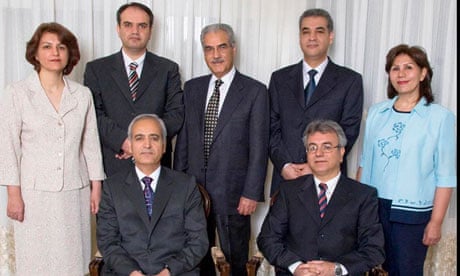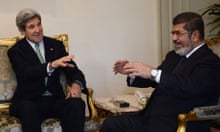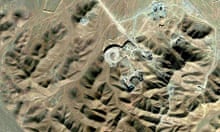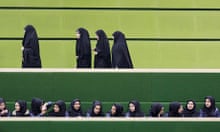An Iranian student belonging to one of the country's most persecuted religious minorities appears to have been expelled from university because of her beliefs.
Paniz Fazl-Ali, a civil engineering student at Iran's University of Science and Technology (IUST) in Tehran, has been banned from continuing her undergraduate degree after it emerged that she is a member of the Bahá'í community, activists said.
Daneshjoo News, a website which gathers information about students across Iran, reported on Wednesday that Fazl-Ali, who is described as "impressively talented", was informed last week that she has been expelled.
She is reported to have successfully finished her third year and had only one year to graduate from the typical four-year engineering programme.
Every year hundreds of thousands of students across the Islamic republic compete with each other in a keenly contested entrance exam held for public universities. Only a few thousands are accepted in top Iranian universities such as the IUST.
In university registration forms, students are required to reveal their religion, but Bahá'ís, who are a banned religious minority, usually leave it blank – as did Fazl-Ali.
"Last month the university administrators summoned me and asked me to fill the section about my religion and I wrote Bahá'í," she told Daneshjoo News. "Last week, as I went to see one of my test results, I noticed that I have been expelled."
Islam is the official religion in Iran and only Christians, Jews and Zoroastrians are tolerated as accepted religious minorities with access to higher education, although each face various restrictions. Bahá'ís, however, have been banned since 1981.
"The day after I got the news I went to the university with my father to pursue what had happened. But nobody gave us any explanation," she said.
Iran considers the religion of a child to be that of his father. Those who convert to other religions risk arrest or even execution for apostasy. In October 2009, an Iranian Christian pastor, Youcef Nadarkhani, was arrested for converting at the age of 19 to Christianity from Islam, his parent's religion, although he insisted he was never a practising Muslim. He was initially sentenced to death for apostasy but was released from jail in September.
After the 1979 Islamic revolution, the authorities stepped up the persecution of the Bahá'í community, accusing its members of having links with or spying for Israel, mainly because the Bahá'í governing body, the Seat of the Universal House of Justice, is based in Haifa.
At least 219 Bahá'í in Iran were executed because of their religious allegiance after the 1979 revolution.
Iranian Bahá'ís have been deprived of their rights, such as access to education or the right to own a business, and are often persecuted for their beliefs. Seven leaders of the Bahá'í community have been in prison for the past five years, each serving 20-year jail sentences.
Bahá'ís might be able to survive in the Iranian society as long as they keep their religion secret, but according to their beliefs they cannot lie if forced to reveal their faith. In 2001, only five Bahá'ís were in jail in Iran, but since 2004 more than 600 arrests have been made and at least 110 Bahá'ís are currently in jail, including the seven leaders, Fariba Kamalabadi, Vahid Tizfahm, Jamaloddin Khanjani, Afif Naeimi, Mahvash Sabet, Behrouz Tavakkoli and Saeid Rezaie.
Scores of Bahá'ís have been expelled from universities in Iran in recent years.
"International law provides that access to education is a basic human right, and Iranian universities have no excuse for denying qualified students the right to attend simply because they are Bahá'ís," said Kishan Manocha, a spokesman for the UK's Bahá'í community. "It is clear that, so long as Bahá'ís are unjustly denied access to higher education, the years of systematic persecution and quiet strangulation against the Iran's sore-tried Bahá'ís continue unabated.
"We call for this injustice to cease, and that Iran's Bahá'í community be treated with the same rights as the ordinary Iranian citizens they are."
The UN's special rapporteur on Iran, Ahmad Shaheed, has described Bahá'ís as "the most persecuted religious community" in the Islamic republic and has repeatedly expressed concerns about their access to education in the country.
"The numbers of Bahá'ís that are in prison have increased – over 100 at the present time according to the information I have," Shaheed said in a speech in New York in October 2012.
"They face a whole range of discrimination, from being unable to practice their faith [to] being denied access to basic services," he said. "And often they face charges unrelated to their faith – national security charges."
A leaked official communication from Iran's ministry of science, research and technology to 81 universities across the country in 2006 shows that they have been instructed to expel all their Bahá'í students.
"If the identity of Bahá'í individuals becomes known at the time of enrolment or during the course of their studies, they must be expelled from university," stated the letter, according to the Bahá'í World News Service.







